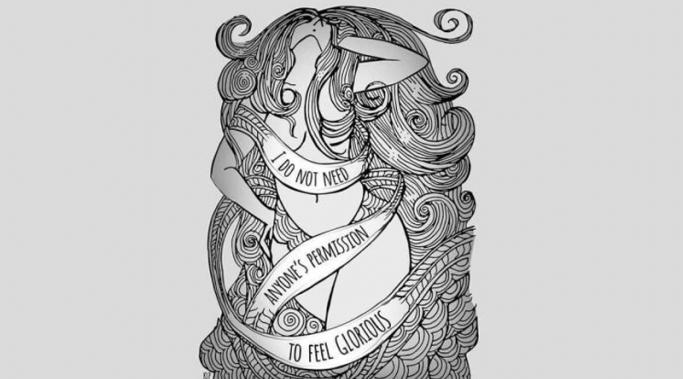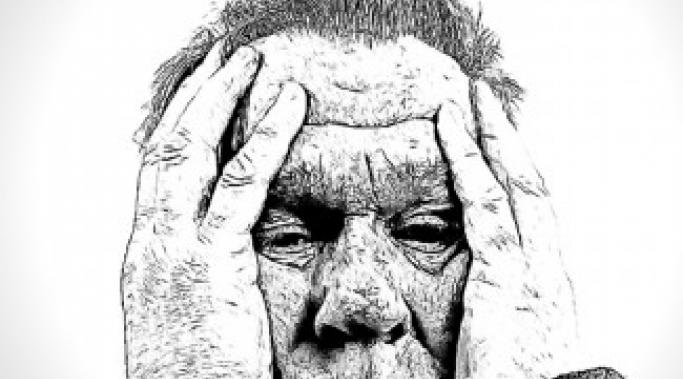Blogs
If you struggle with body image issues it's likely that you feel insecure in other areas of your life, too. When you fixate and over-focus on what you don't like about your body it bleeds into your self-esteem. No matter your shape or your size you deserve to have the skills to combat body image issues and feel confident in the skin you're in.
Depression and addiction can occur together – a dual diagnosis. For a recovering addict like myself, the hopelessness that always followed me was confusing—am I depressed or coming down from the high? Which came first, the depression or the addiction/hangover?
Getting things done when you’re depressed isn’t just about finding time. Getting things done with depression is also about finding brain space. Brain space, for me, is the biggest limiter of my functionality in bipolar (at least partially because I’m a writer). It feels like my brain gets “full’ and then I can’t do anything because I can’t think. Or I can’t handle thinking. Or thinking causes such anxiety that I’m frozen. This brain space limits me getting things done when depressed.
I have found that there are some really good reasons that we should not compare our posttraumatic stress disorder (PTSD) recovery to the recovery of others. It's easy to get caught up in the comparison of your recovery process to the processes of others. After all, you are going through the same types of struggles and are dealing with the same types of symptoms (PTSD Symptoms and Signs of PTSD). Not to mention we often find a lot of similarities that allow us to relate to one another, and that is beneficial -- it lessens the feeling that we are alone. However, while that type of peer support is helpful to us, comparing our progressions in PTSD recovery is not.
There’s no denying mental illness stigma is a year-round occurrence, but, sometimes, different points in the year make that stigma feel more poignant (What Is Stigma?). Summer is one of those times because it boasts good weather and longer days, and, typically, people encourage each other to be outside. It’s time to “enjoy the weather” so to speak, but that’s not always so easy. Summertime mental illness stigma can be a problem.
A lot of people, whether they have binge eating disorder or not, seem to think that a binge eating disorder recovery is made up of one event. This mythical event marks the end of your recovery and from then you never encounter a problem with binge eating disorder ever again. Unfortunately, it's a little more complicated than that. Binge eating disorder recovery is not a one-time event.
Have you ever found yourself feeling stressed and anxious even when things are good? Everything is coming up roses, and you're enjoying the rose garden. Yet, frustratingly, you feel keyed-up, tense, and worried (Overwhelmed by Stress and Anxiety? How to Deal with It). When you reflect on your life, you are happy that, for the most part (nothing is ever perfect, after all), you are in control, your relationships are pretty positive, and you’re experiencing successes where you want them to be. In strolling through your beautiful rose garden, though, you still feel stress and anxiety. This is maddening. You don’t have to accept this. Here are four ways to handle feeling stressed and anxious even when things are good.
Something remarkable happened when I shifted my mindset from scarcity to abundance. This shift from scarcity to abundance somehow, some way, freed up energy and created more time in my days.
What does life with dissociative identity disorder feel like? May is Mental Health Month and people around the world are sharing what mental illness feels like. To go along with the #mentalillnessfeelslike campaign, I asked a group of people with dissociative identity disorder (DID) to describe, in their own words, what having DID feels like. The answers were varied, with both positives and negatives. To one person, living with DID feels like, "having a war inside my head," yet to another, DID "feels like a gift." The answers show just how diverse DID really is.
Bipolar moms are superheroes. I know we don't look like it, usually. We're dressed as ordinary moms, wearing our yoga pants at pick up and our baseball caps at little league games. That's what you see on the outside. That's how we blend in. But if you could see the battle we're fighting each and every day to stay healthy and to love our families, you'd see our superpowers at work. Every bipolar mom is a superhero, whether you can see her superpowers or not.










I believe she will only be able to rid herself of her demons, and hopefully her BPD as well, when she's ready to confront the abuse of her father. If she can put the blame where it belongs, she may stop projecting that victim/perpetrator cycle on the present men in her life. These demons are a metaphor for the purgatory she has created for herself. That reality has consequences in the real world, but it need not be real in the tangible sense. Exorcising her demons will require the expenditure of real physical energy and probably the destruction of aspects of her personality. If this ever happens, and it's possible but not probable, then these demons will evaporate. They are only as real as one's personality is real. In short, reality is not the question, it's what you make of the things you feel to be real.